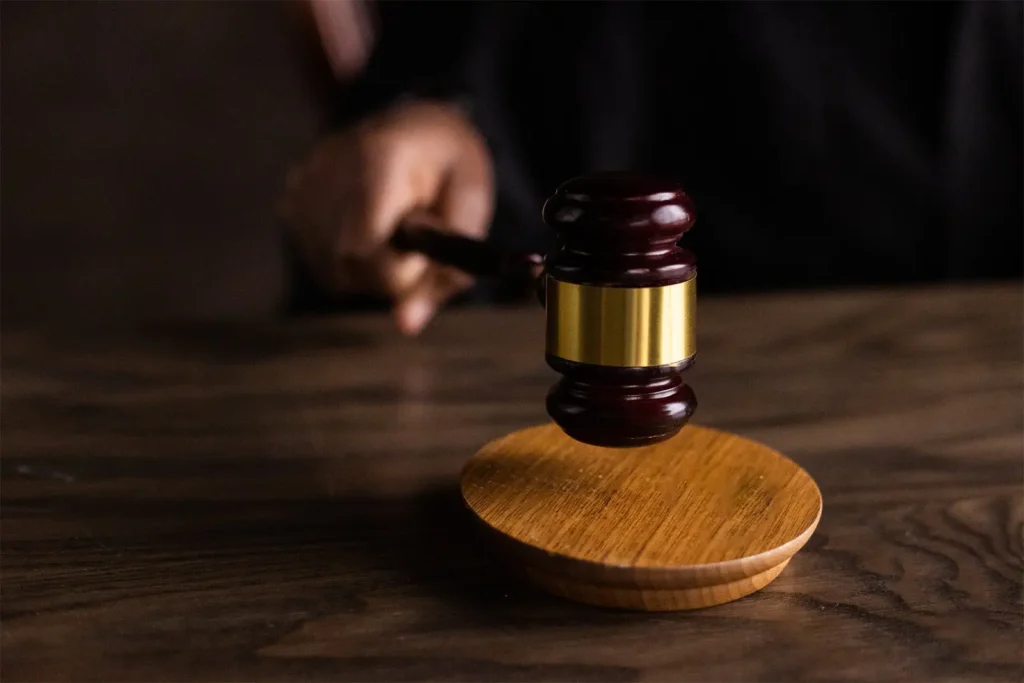A temporary restraining order is a very serious matter. It’s a court order that is typically filed before a permanent restraining order is issued.
Restraining orders are used in a lot of domestic violence cases or conflict between family members that has turned aggressive. Some examples of that conflict include
- physical abuse
- sexual assault
- harassment
- stalking
It’s important to know that you have a number of important rights if a restraining order is filed against you. It’s critical to know what these rights are and what you can do.
What is a Temporary Restraining Order?
A temporary restraining order (TRO) is a court-issued document before a trial.
A judge orders the TPO when there is a credible threat of violence to stop certain actions by someone in order to prevent:
- Physical harm
- Pain
- Abuse
Restraining orders are often used in domestic violence cases in which:
- A victim will typically file one against an alleged abuser.
- They require someone to have no contact with or stay away from the person who files it.
However, a temporary order only lasts for a few days up to a few weeks. There is more to the legal process before a judge is able to enter a permanent order.
In those cases, you are entitled to a hearing and to defend yourself.
What happens when a restraining order is filed?
- A restraining order is filed (by a “petitioner”) through the court system.
- The petitioner asks the court to grant the order against someone (known as the respondent).
- A temporary order is issued initially before a judge sets a hearing on whether or not to grant a permanent restraining order.
You should never ignore a restraining order if one is filed against you. If you feel that you have a valid argument against a restraining order, there are steps you should take.
- You can gather evidence related to the petition. That includes physical items and electronic records such as text messages or emails.
- Also, make a list of credible witnesses and make sure you have their contact information.
What happens if a restraining order is violated?
Violating a restraining order is very serious, and you can be charged with a crime if you do so. That’s why it’s imperative to obey a restraining order.
Even if you feel the restraining order is invalid, make sure to follow all the orders contained in it.
It’s better to let the legal process of a restraining order play out rather than try to settle a dispute outside of the courtroom.
- Don’t try to talk to the petitioner who filed against you or any witnesses that would likely testify on behalf of them.
- You should not destroy any evidence you think may hurt you. You want to avoid creating any doubt or suspicion against you.
What are the differences between a temporary and permanent restraining order?
A temporary restraining order:
Can be filed by a petitioner against someone without the respondent or target of the order present. Typically, temporary orders only last a few days and, in some cases, a few weeks.
Permanent restraining order:
- To be issued, a judge is required to have a formal hearing.
- The judge will set the hearing, and the target of the order is notified.
Oftentimes, these hearings are set quickly within a matter of days or weeks from when the temporary restraining order is filed. That means you may only have a week or so to prepare.
How can an attorney help you if you have a restraining order against you?
You have the right to be represented by an attorney if a domestic violence restraining order has been filed against you. However, in this type of proceeding, you are not entitled to a court-appointed attorney or free counsel.
This is why it’s important to find an experienced criminal defense attorney who can help you every step of the way leading up to your court hearing.
The court process can oftentimes seem complicated, and an attorney can help simplify things.
- An attorney will have a full understanding of the laws in your state.
- They can help defend you against a permanent order. Remember, a temporary restraining order happens quickly, and the legal proceedings that happen after can seem to happen even quicker.
- An attorney can walk you through the process step by step.
In short, hiring an experienced lawyer will increase your chances of a favorable outcome.


